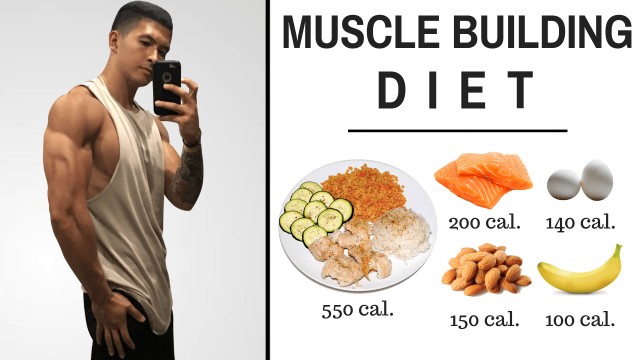Index Surge: Amplifying Your Insights
Stay updated with the latest trends and news across various industries.
Calories and Heavy Lifting: A Recipe for Gainzz
Unlock the secret to explosive gains! Discover how calories and heavy lifting can transform your physique and fuel your fitness journey!
Understanding the Caloric Surplus: Fueling Your Heavy Lifting Journey
Understanding the caloric surplus is essential for anyone looking to enhance their performance in heavy lifting. A caloric surplus occurs when you consume more calories than your body burns, providing it with the necessary energy to build muscle and recover from intense workouts. This excess energy is crucial for weightlifters, as it fuels workouts and promotes muscle growth. When in a caloric surplus, your body has adequate resources to repair and strengthen muscle fibers that are torn during heavy lifting, ultimately leading to improved strength and performance.
To effectively manage a caloric surplus, consider focusing on the following strategies:
- Track Your Intake: Use a food diary or app to monitor your daily calorie consumption and adjust as needed.
- Prioritize Macronutrients: Ensure you're getting enough protein, carbohydrates, and healthy fats to support muscle growth and overall health.
- Monitor Progress: Regularly assess your strength gains and body composition to determine if adjustments to your caloric intake are necessary.

The Science Behind Protein Intake: How to Optimize Your Gains
Protein intake is a fundamental aspect of muscle growth and recovery, playing a critical role in optimizing your gains. When you consume protein, your body breaks it down into amino acids, which are the building blocks of muscle tissue. Research suggests that individuals should aim for a daily protein intake of approximately 1.6 to 2.2 grams per kilogram of body weight, particularly for those engaged in resistance training. This level of protein consumption helps to stimulate muscle protein synthesis, essential for repairing and growing muscle fibers after workouts. To achieve this, incorporating a variety of protein sources, including lean meats, dairy, legumes, and plant-based proteins, is recommended.
Additionally, timing your protein intake can further enhance your muscle-building efforts. It is often beneficial to consume protein-rich meals or supplements within a two-hour window post-workout, as this is when your muscles are most receptive to nutrients. A balanced approach might include pre-workout and post-workout protein sources, thereby ensuring that your muscles have a constant supply of amino acids. Consider incorporating high-quality protein sources like chicken, fish, eggs, or plant-based options into your meals to sustain your protein levels throughout the day. Remember, consistency is key in optimizing your gains and supporting overall health.
Calories vs. Quality: What Matters Most for Heavy Lifters?
When it comes to fueling the body for optimal performance, heavy lifters often grapple with the debate between calories and quality of food. On one hand, meeting caloric needs is crucial for muscle growth and recovery, but the quality of those calories can significantly impact overall health and performance. Consuming a high-calorie diet with minimal nutritional value can lead to unwanted weight gain and compromise health. Therefore, striking a balance between achieving sufficient caloric intake and prioritizing nutrient-dense foods is essential for any serious lifter.
Quality takes precedence when considering what fuels the body in demanding training sessions. Whole foods rich in proteins, healthy fats, and complex carbohydrates provide the vital nutrients necessary for recovery and muscle repair. A diet focused on nutrient-dense options ensures that heavy lifters not only meet their caloric requirements but also support their performance, energy levels, and long-term health. By prioritizing quality over sheer calories, lifters can enhance their physical progress while minimizing the risk of chronic issues arising from a poor dietary approach.